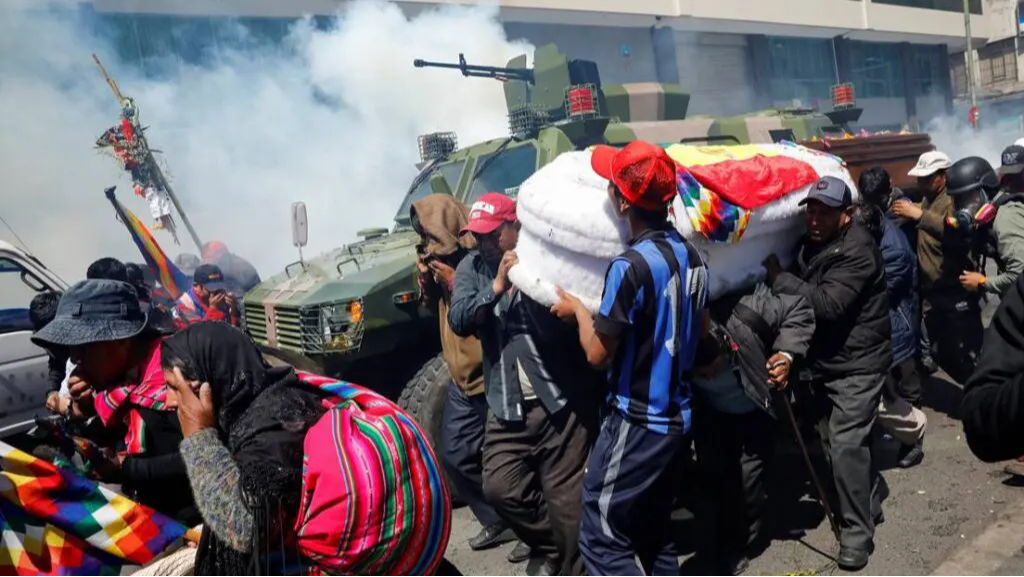In Bolivia, a virtual hearing on Monday kicked off the trial for the so-called Senkata Case involving former de facto ruler Jeanine Áñez and 17 other people, including civilians, military and police.
The victims of these events, relatives of the dead and injured, called on their members to keep watch at the trial and register as plaintiffs in the process.
“We victims have to be present at the time the list is taken, because if a victim is not there, a victim will be removed from the process. That is, if five of the 10 relatives are there, the trial will go ahead with those five. This first hearing is very important, if there are only five of the 40 injured, the trial will go ahead with those five. Then we notify all the victims,” warned the coordinator of one of the two groups of victims of Senkata, David Inca.
The trial in the case got underway in the court of justice of El Alto, although the accused did not need to attend because it will be virtual. This trial focuses on the deaths that occurred on November 19, 2019 when soldiers fired on civilians, causing 10 deaths and 40 injuries. Now they want to join as part of the civil accusation against the perpetrators.
In addition to Áñez, former ministers Arturo Murillo Prijic, Fernando López Julio and Víctor Hugo Zamora Castedo are involved. The first two because they are allegedly the ones who authorized the departure of military and police in Senkata and the third who was the Minister of Hydrocarbons, on whom the Senkata storage plant depends, where the events took place.
In addition, there are 13 military personnel involved, from those who authorized the deployment of assault vehicles and troop mobilization to the commanders of the units that guarded the plant on the day of the events, in this case elite troops such as the Sanandita satinadores.
Also listed are three former police chiefs who authorized the deployment of the police moments before the shooting. The Fourth Criminal Court of El Alto will be in charge of hearing the trial that the former president did not attend because it considers that it does not have jurisdiction to judge her.
On November 19, 2019, there was repression against protesters in El Alto at the gates of the Yacimientos Petrolíferos Fiscales Bolivianos (YPFB) plant. At that time, the de facto authorities said that the protesters shot each other. The experts would determine that they were wounded by high-caliber bullets.
This trial has no link with the cases called ‘Coup I’ or ‘Coup II’, this is a third process against the former de facto president, Jeanine Áñez, responsible for having authorized the withdrawal of the military and opening fire against the protesters.


